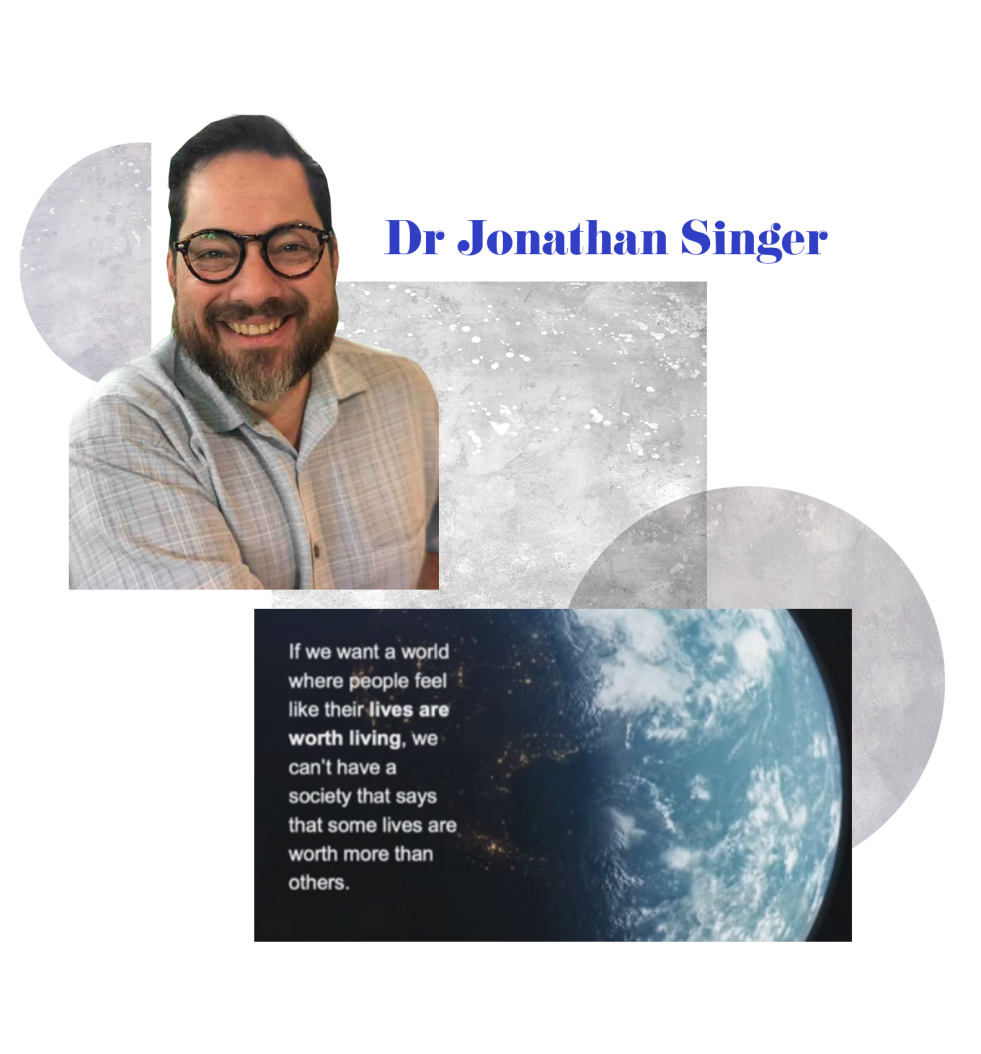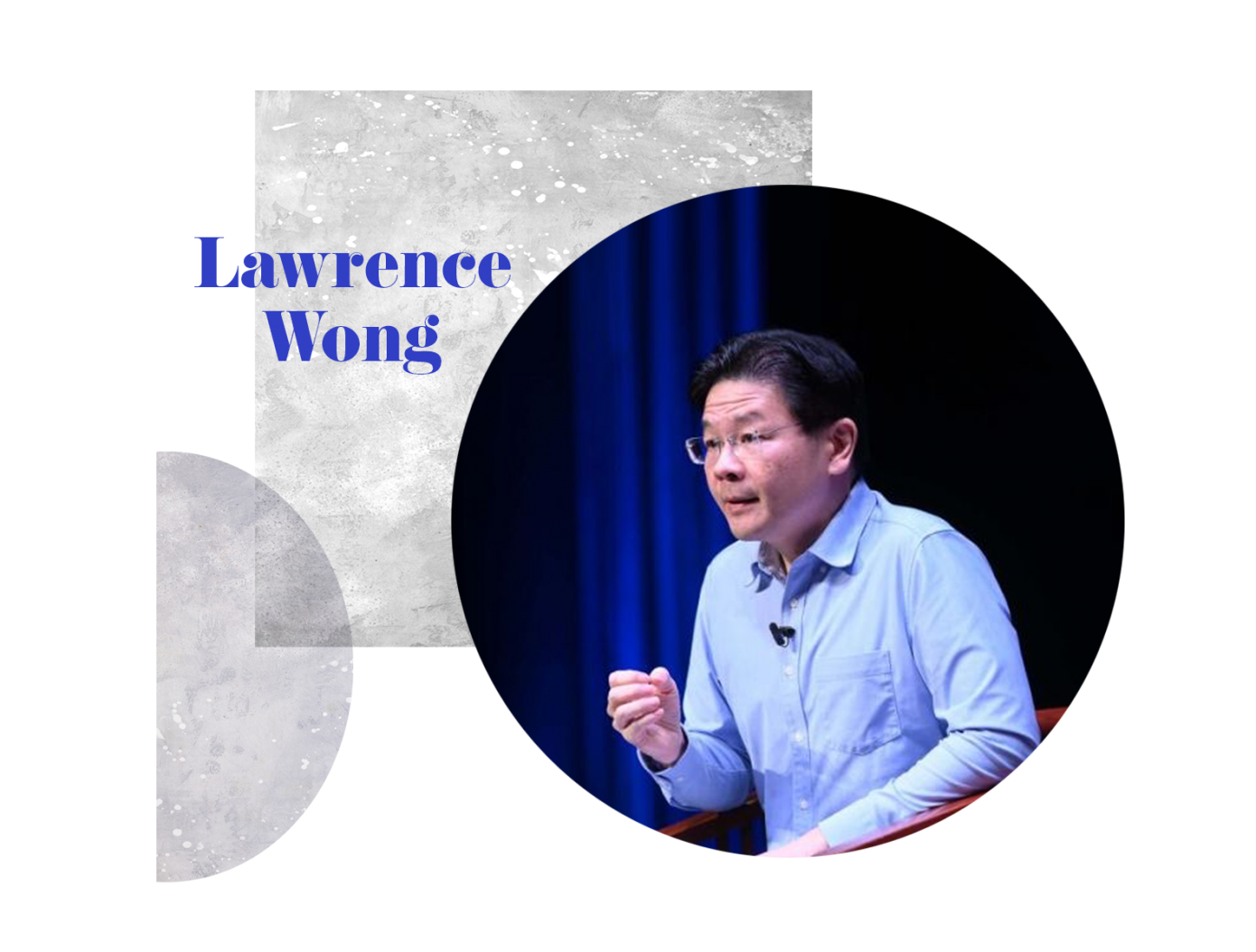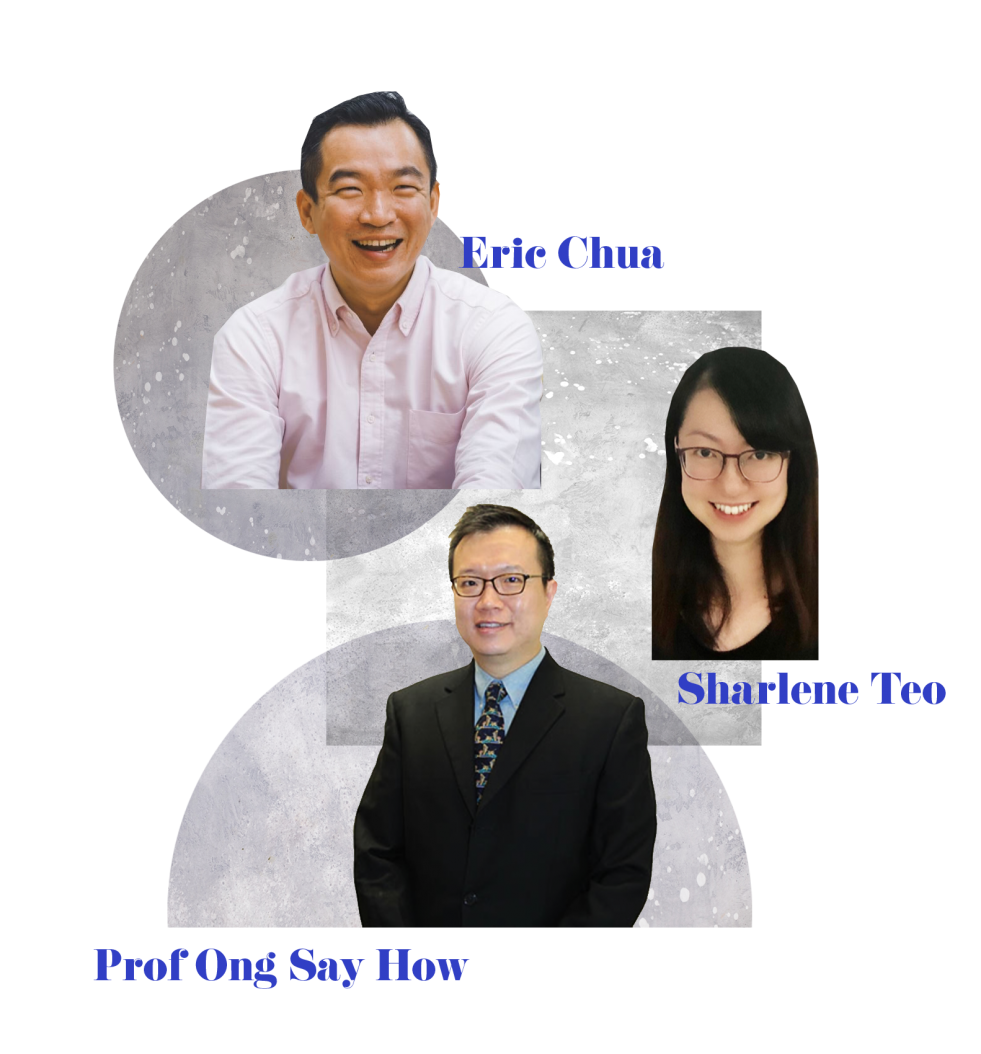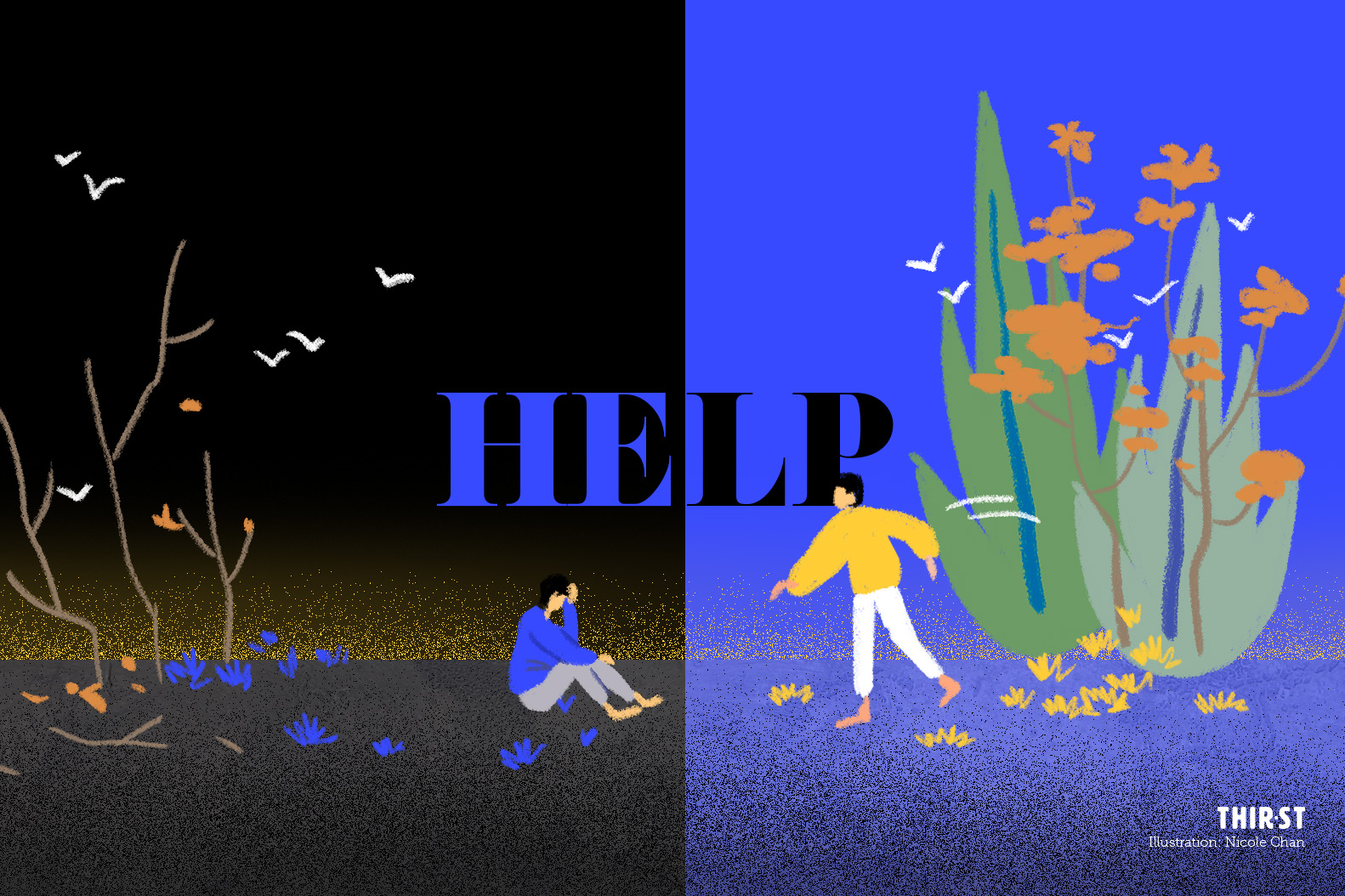“In the next 40 minutes, 60 people will die by suicide.”
Sharing this sobering statistic at the Samaritans of Singapore (SOS) Symposium 2021, suicide expert Dr Jonathan Singer added that around half of this number would be aged 45 or younger.
Even though such a global figure can seem cold and impersonal, the President of the American Association of Suicidology took pains to emphasise this during his opening keynote: “Every single one of these numbers was a person, was a life, was a hope.”

It is for this reason that SOS is organising its inaugural bi-annual Symposium from September 9–11 in conjunction with World Suicide Prevention Day (September 10).
What can we do to prevent more lives from being lost to suicide? How can we provide better support to those who need help?
As some 600 local and overseas participants gather virtually over the next two-and-a-half days, the Symposium hopes to open up opportunities for stakeholders to move one step closer to finding the answers to these questions.
THE COVID-19 EFFECT
Giving the welcome address, Guest of Honour Mr Lawrence Wong, Minister for Finance and Patron of SOS, pointed out that the Symposium’s theme of Transitions: Harnessing Strength Amidst Uncertainties is timely, given the disruptive impact of the pandemic.
“Many of us may have personally felt, or seen amongst our close circles, a sense of fatigue and anxiety with our changed lifestyles and routines,” said the minister, who also co-chairs the Multi-Ministry Taskforce on COVID-19.
In fact, a study conducted by the Institute of Mental Health (IMH) found that about 13 per cent of those surveyed reported experiencing symptoms of depression or anxiety from March 2020 to June 2021.
“What is of concern is also the heightened sense of distress felt by some,” shared Mr Wong.
For example, he highlighted that the IMH helpline saw 50 per cent more callers last year compared to the same period in 2019. This figure peaked in April 2020, which coincided with the start of the circuit breaker.
“Crises like the current pandemic exacerbate the already complex and multi-faceted issue of suicide ideation, which often involves family, social and mental health issues,” said Mr Wong.

Locally, the number of deaths by suicide seem to bear this out. Last year, Singapore recorded 452 suicide deaths, a 13 per cent increase from 2019.
What is even more worrying though is that the spikes in figures among the teens and the elderly were the highest in the last 20 years.
It is perhaps fitting then that these two age groups were the focus of much discussion during the opening sessions of the Symposium.
WHAT MAKES SOME PEOPLE MORE VULNERABLE?
Professionals said that even before the pandemic, there are already certain factors that contribute to higher suicide risk among youths and the elderly.
During the panel discussion, Associate Professor Ong Say How, Senior Consultant Psychiatrist & Chief of the Department of Developmental Psychiatry at IMH, shared some insights from his clinical experiences with young people:
- A teenager or youth may not have all the necessary skills and resources to cope with competing stresses from different fronts, such as studies, friendships and parents.
- At that developmental stage, there’s a tendency to engage in “catastrophic thinking”, where minor problems become magnified. Such feelings can be very overwhelming.
- It is also common to experience existential crises at that age, where one starts to question the meaning of life.
Sharlene Teo, Counsellor, Fei Yue Family Service Centre Singapore, added that many at-risk individuals are experiencing a sense of disconnectedness within their families.
This is despite technology enabling greater connectedness with the world, she observed.
Other factors include the work demands on the sandwich generation, which may lead to a possible neglect of the young and the old within their family, as well as those who have experienced some sort of childhood trauma.
“That feelings of uselessness may be triggered once again by these current life stresses that they are going through,” explained Teo of the impact of negative, unresolved experiences early on in life.
WHAT CAN WE DO TO HELP?
“Most of them actually really don’t want to die… what they do want is to have a solution for their pain and suffering,” said Teo.
“It’s really about having that someone to journey with them, to hold their pain, to contain, to emphathise with them.”
That’s why it’s important for young people to know that expressing vulnerability is okay, and that you can do so without being judged, she added.
Prof Ong also debunked a few myths. The first concerns how people perceive mental health conditions.
Mental illness is highly treatable, and symptoms can be reduced to the extent that a person can still live well, he explained.
“When someone is suffering from a mental illness such as depression or schizophrenia, it’s a very legitimate, biological condition — just like high blood pressure (and) diabetes,” said Prof Ong.
The second is when people view seeking help as a sign of weakness.
“We really have to provide accurate information and education to the general public that this is not true,” he shared, explaining that early identification and treatment is actually crucial in bringing about significant recovery.

The need to fight stigma was also a key message brought up by Mr Eric Chua, Parliamentary Secretary in the Ministry of Social and Family Development as well as the Ministry of Culture, Community and Youth.
While there are initiatives at the government level, such as the setting up of the new inter-agency task force on mental health and well-being; in schools, with the emphasis on mental health literacy; and easier access to sources of help within the community, he said that addressing this issue requires a “many helping hands approach”.
Extending a call to ordinary people who are not professionals, he urged all of us to practise 3Ls.
- Look out for the behaviour of your loved ones. Are they looking more downtrodden or not acting like how they normally would?
- Listen and hear them out. Do they sound a little bit more dejected than usual?
- Link them to persons they can trust if we assess that they need help. These persons may or may not be professionals, but such relationships can save lives.
“Each of us can do something,” said Mr Chua.
“We are all connected to a whole network of loved ones, and we can be the guardians of our loved ones.”
In the spirit of creating safe spaces for conversations, SOS has also launched a new campaign for World Suicide Prevention Day this year.
Running from September 10 to 31, The Honest Cookie — Break A Cookie, Break The Silence, will see cookie packs being distributed islandwide through a collaboration with foodpanda and LiHo TEA.
Based on the concept of a fortune cookie, each cookie comes with a question inside to help people open up about their feelings and have an honest conversation with someone else.
There is also a social media component where people can raise awareness by tagging three friends and using the hashtags #thehonestcookie and #breakacookiebreakthesilence.
Indeed, as many of the speakers have pointed out, tackling mental wellness and suicide prevention requires a multi-pronged strategy, from strengthening professional capabilities to encouraging more conversations on this topic.
“It takes an entire community to help look out for one another, detect early warning signs of distress, and provide support and comfort to those who may be troubled,” said Minister Wong at the start of the Symposium.
“Whatever the challenge or transition may be, let us work together to actively steward and improve the mental well-being of our nation.”
If you’re feeling troubled and would like to chat with someone, help is available at these centres:
- Samaritans of Singapore (SOS): 1-767 (1-SOS) (24-hour) | pat@sos.org.sg| m.me/SamaritansofSingapore
- Institute of Mental Health: 6389-2222 (24-hour)
- National Care Hotline: 1800-202-6868
- Singapore Association for Mental Health: 1800-283-7019
- Care Corner Counselling Centre (English and Mandarin): 6353 1180
- TOUCHline (Counselling): 1800-377-2252
- Fei Yue’s Online Counselling Service: ec2.sg
- Tinkle Friend by Singapore Children’s Society: 1800-274-4788 | tinklefriend.sg (online chat)
- Silver Ribbon Singapore: 6385-3714









